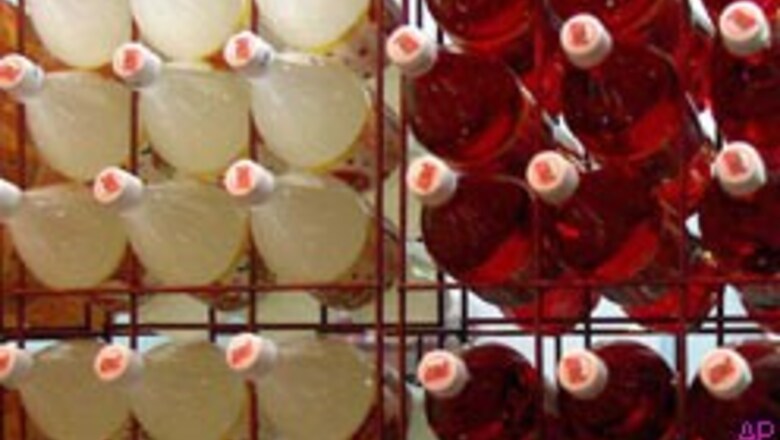
views
An extra can of soda a day can pile on 15 pounds in a single year, and the weight of evidence strongly suggests that this sort of increased consumption is a key reason that more people have gained weight, the researchers say.
"We tried to look at the big picture rather than individual studies," and it clearly justifies public health efforts to limit sugar-sweetened beverages, said Dr. Frank Hu, who led the report published Tuesday in the American Journal of Clinical Nutrition.
He and others at the Harvard School of Public Health reviewed 40 years of nutrition studies that met strict standards for relevance and scientific muster.
The work was funded by ongoing grants to his lab from the federal government and the American Heart Association.
Soft drink trends have marched lock-step with the growing obesity epidemic, but industry groups have long fought efforts to say one directly caused the other.
Not all studies conclude that beverages are at fault, and the new analysis ignored some that would have discounted such a link, the American Beverage Association said in a statement issued in response to the study.
"Blaming one specific product or ingredient as the root cause of obesity defies common sense."
"Instead, there are many contributing factors, including regular physical activity," says a statement from the group's senior science consultant, Richard Adamson.
However, Dr. David Ludwig, director of the obesity program at Children's Hospital in Boston and a longtime advocate of curbs on soda, said blaming other factors misses the point.
"Could you imagine somebody saying we should ignore the contribution of hypertension to heart attack because there are many causes? It's ludicrous. Yet this argument resurfaces with regard to obesity," Ludwig said.
When it comes to beverage trends and obesity, "it's like documenting the force of gravity," he said. "There's an overwhelmingly strong case to be made for a causal relationship."
About one-third of all carbohydrate calories in the American diet come from added sweeteners, and beverages account for about half of this amount, the new report says.
The main sweetener in beverages — high-fructose corn syrup — contains slightly more fructose than ordinary table sugar.
Some studies suggest that pure fructose fails to spur production of insulin, which is needed to process calories, or leptin, a substance that helps regulate appetite.
PAGE_BREAK
Industry scientists say this small difference in fructose content does not justify some nutrition experts' arguments that sweetened beverages are less satisfying.
Regardless of this debate, a single 12-ounce can of soda provides the equivalent of 10 teaspoons of table sugar, the Harvard review says.
The 30 studies included in the new review are of different types — experiments where beverages were curtailed or modified, studies of cross-sections of the population.
While all do not show harm, they collectively suggest that soda and sugary drinks "should be discouraged," the authors write.
Federal dietary guidelines recommend beverages without added sugars, and the WHO advises that added sugars should provide no more than 10 percent of total calories.
Increasingly, sugary drinks are being restricted in schools. In May, top beverage distributors agreed to stop selling non-diet sodas in certain schools and restricted sales in certain settings where young children buy them.



















Comments
0 comment